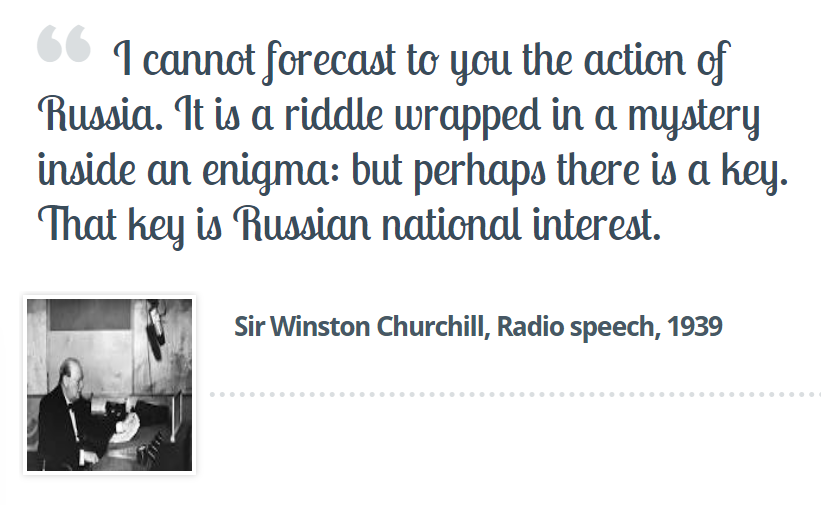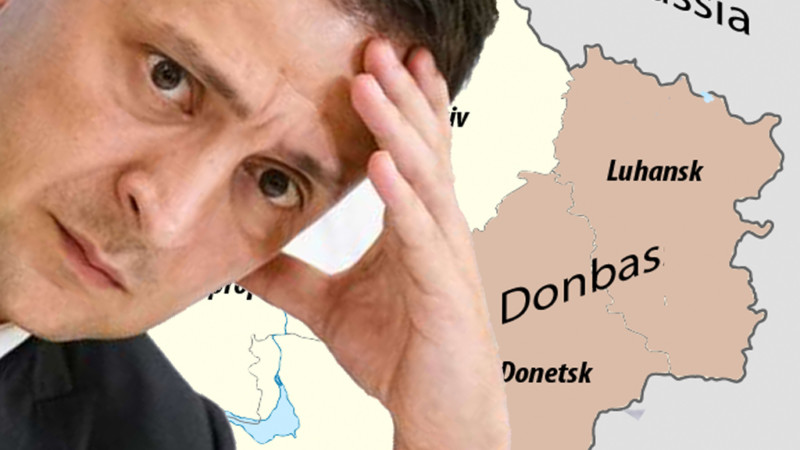“One cannot understand Russia by reason…”: what about Ukraine…?

In light of the recent outrage in the local Ukrainian-Canadian community and the subsequent cancellation of a lecture by the Russia-based scholar of history and public memory, Dr. Alexei Miller, I am compelled to express the reasons as to why I initiated and subsequently cancelled this event.
Russian poet and diplomat of the 19th century, Fedor Tiutchev, famously proclaimed: “One cannot understand Russia by reason…”. Sir Winston Churchill echoed him by saying (1 October, 1939): “I cannot forecast to you the action of Russia. It is a riddle wrapped in a mystery inside an enigma. But perhaps there is a key. That key is Russian national interest.” Churchill was right. It is necessary to use that key in order to understand Russian alleged “mystery” from the Ukrainian perspective.
The Canadian Institute of Ukrainian Studies proved the significance of Ukrainian topics in better understanding of Russia. In 1981, CIUS organized the first Conference on Ukrainian-Russian Relations, held in Hamilton, Ontario. One can only imagine how difficult it was to organize such a conference during the Cold War era. Ukraine did not exist as an independent state. Many Russian intellectual émigrés, including Aleksandr Solzhenitsyn, were invited but refused to participate. Many Ukrainian émigrés considered any form of a dialogue with Russians and Soviets as national treason. However, the conference was a success.
It was followed by the other conferences after the dissolution of the Soviet Union. CIUS initiated a significant international project comprising a series of four symposia on Ukrainian-Russian relations, held from June 1994 to September 1995,
which brought together many distinguished specialists from all over the world including Russia. It was followed by the Kowalsky Program for the Study of Eastern Ukraine and its many projects. This legacy has been continued under the Contemporary Ukraine Studies Program (CUSP) since 2012.
The Ukrainian-Russian borderland is not a frozen ocean, like the one that divides Canada and Russia. It`s a space of uncharted waters of entangled histories, shared symbolic geographies and hybrid identities. From the Ukrainian perspective, Russia is usually perceived through the lens of Ukrainian-Russian relations. Thus, a dialogue between Ukrainian and Russian historians is conducted primarily on Ukrainian or Ukrainian-related topics. If this indeed is a dialogue, then it looks highly asymmetrical.
As CUSP’s founding director at CIUS, one of my long-term goals is to promote change in the overall approach to Russian topics from the Ukrainian side and assist in the establishment in Ukraine of a fully-fledged field of Russian studies at the institutional level. CIUS’s experience to that end has the potential to be substantial. So far, Russian studies in Ukraine—as well as Ukrainian studies in Russia—are still in their infancy. One might be tempted to compare this situation with the established system of Canadian studies in the USA and American studies in Canada.
CUSP is currently working on several projects with the focus on Ukraine, including post-Soviet transformation in the Eastern and Southern Ukrainian regions and cities as well as multiculturalism in Ukraine. In the context of ongoing political instability in Ukrainian-Russian relations, a series of public lectures on contemporary Russia was recently initiated.
The series was envisioned as a broad dialogue and inevitably a debate, with a reflection on “What is Russia?” as a starting point and the following questions to be addressed: What informs and motivates Russian policy today? Where is the country going? Is the new “social contract” between the Kremlin and Russian society still valid? What is happening with Russian national identity? Etc. These and some other questions constitute key touchstones in the dialogue between the academic disciplines of Ukrainian, Russian, and European studies.
To search for the answers to these and other related questions, a long list was drafted of experts representing different countries, from Poland and Lithuania to Germany, the Netherlands, and the United States. Specialists in various fields were to be invited to talk about Russia, whether in relation to Ukraine or not, while approaching the topics of Russian history, politics, economics, and sociology from different angles and disciplinary perspectives.
We decided to start the series of public lectures with the Russian historian from Russia who is a specialist in Russian studies. Our choice landed on Dr. Alexei Miller for many reasons. He is the director of the Center for Memory Studies at the European University at St. Petersburg, which is one of the few academic institutions in Russia devoted to the principle of academic autonomy. In fact, it has led that university to come under attack from the Russian political establishment.
Dr. Miller is a leading expert in the fields of Russian imperial and national studies, who has taught and lectured at universities across the globe, from Harvard, Berkeley, and Stanford to Paris, Berlin, and London. He is also a specialist in Ukrainian history and author of the monograph and many articles on the Ukrainian question in the Russian Empire. Dr. Miller has previously participated in projects initiated and conducted by CIUS. His views on Russia and Ukraine are original and provocative in a constructive sense.
We should remember that no scholars worth their salt will be perceived as unobjectionable by everyone. We are all involved observers. In one way or another.
That’s why our observations are mostly selective and the conclusions are limited. The only possible way to go beyond these and other limitations is a dialogue. A dialogue between professionals, on the one hand, and between them and the wide audience, on the other hand.
CUSP shall proceed in the fulfillment of its scholarly mandate, and I sincerely hope that the dialogue between the Ukrainian “town and gown” will be conducted in a more civilized manner. Keeping in mind our desired ultimate outcomes, do we need to follow the ancient wisdom: “Inter arma silent Musae?…”
Volodymyr Kravchenko

